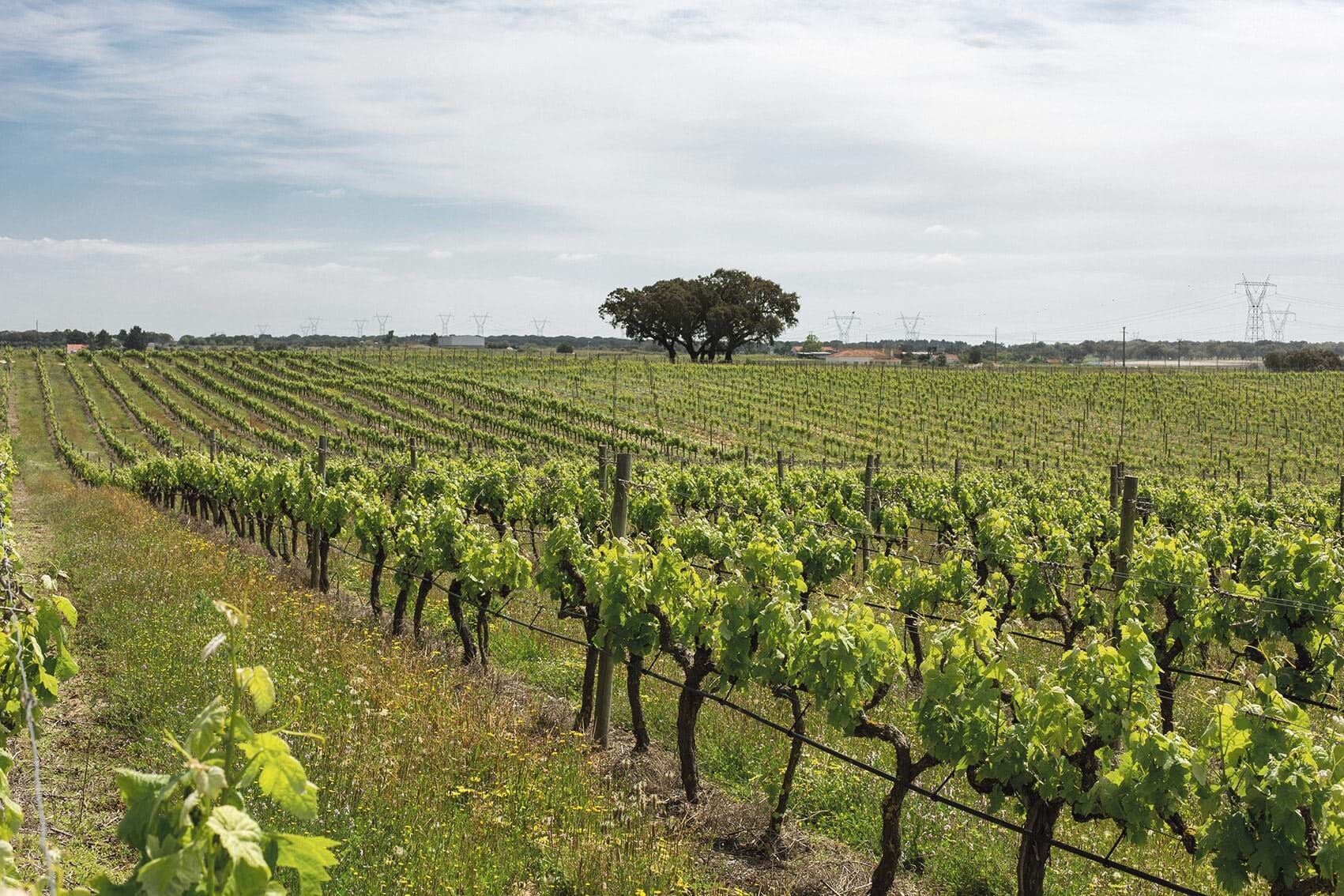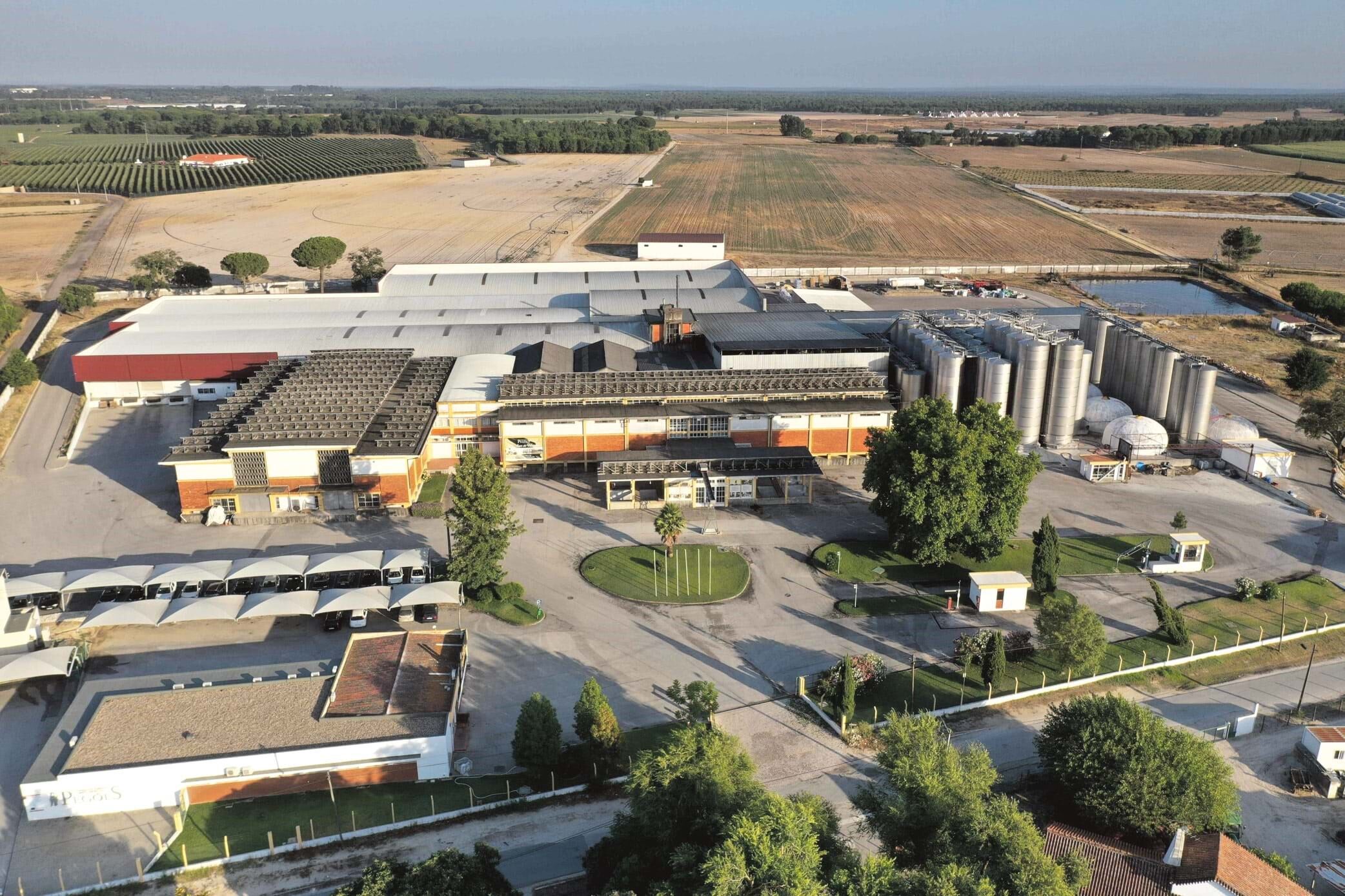Cooperativa Agrícola de Santo Isidro de Pegões ended 2022 with a turnover of 24.5 million euros, recovering from early year problems for its business caused by a lack of auxiliary raw materials due to the conflict that erupted earlier in the year in Eastern Europe. According to Jaime Kendera, CEO of Adega de Pegões, 2022 has been the best year for his company, with sales growing in both domestic and export markets. But that doesn’t mean everything went smoothly. This is far from the case, as the Russian invasion of Ukraine had very negative consequences for Portugal and the entire global economy.
In particular, the national wine sector has been experiencing a shortage of ancillary raw materials needed for business for several months, such as glass bottles, cartons and labels, in parallel with a disproportionate increase in their cost, in the order of double digits. after a few months. “This resulted in us not being able to sell wines because we didn’t have bottles to pack them,” explains Jaime Kendera. “At some point, we didn’t discuss the price anymore,” he says, explaining that they had to do this because it was important to deliver bottles in order to be able to respond to orders.
positive year
At the same time, the increase in the cost of raw materials led to a decrease in the profitability of sales and the profitability of products. This is because agreements have been made with major distribution companies that prevent Adega de Pegões from suddenly raising the price of its products in order to pass on the increase in auxiliary raw materials. “It’s a process that takes three to four months,” says the CEO of Adega de Pegões, stressing that all of this contributed to the decline in the profitability of his business in 2022.
However, the stabilization of global markets, caused by the world’s reaction to the economic consequences of the Russian-Ukrainian conflict, led to the normalization of the activities of most enterprises affected by the crisis and the recovery of Adega de Pegões, which ended the year with a slight increase in sales compared to the previous year. “This happened mainly in more mature European markets such as Germany, the Netherlands and the UK, where we have been active for several decades, as well as in Poland, thanks to the Jerónimo Martins group, which owns Biedronka, one of the largest important in the country and we place our faults there,” explains Jaime Kendera. He adds that losses were mainly in eastern markets, including, of course, Russia and Ukraine, while markets in the Americas such as Brazil, the US and Canada maintained their import quotas for Adega de Pegões wines. All of these movements resulted in a positive end to the year with a modest increase in sales.
Jaime Kendera expects the company’s sales growth to grow by about 10% this year, mainly due to increased demand from large distribution networks here and abroad. “In my experience, the crisis makes consumers think a little more and better about how they spend money, which leads to an increase in demand for Adega de Pegões wines, which are already known in markets where we have been present for a long time. ‘, explains the manager. “When they have to choose, they choose the quality wine they know, at a fair price, that is always safe, like Pegoins wine.”
Aerial view of the Adega de Pegões facilities
modern agriculture
“One of the great advantages of this winery is the professionalism and competence of all the people involved in our value chain, from our partners in the vineyard to the winery,” notes Jaime Kendera, adding that this has greatly contributed to its success over the years. and also for the resilience that the company he manages has shown in the last period.
It is modern agriculture that guarantees the future. For this reason, the future of Adega de Pegões is assured, not least because part of its team consists of trained young people, as well as part of the members of its cooperatives. “Currently we have 100 partners who use selected clones and vineyards planted in extended areas that are mechanized and in full production,” explains Jaime Kendera. “Our goal is to produce good wine with a good reputation at a good price. It is this premise that still ensures the sustainable growth of the company,” he emphasizes. These goals are achieved on the basis of a deep knowledge of the entire production system, which begins in the vineyard and ends when the wines enter the market. And they are achieved through systematic work on each appeal.
“At Pegoens, we identify everything, including grape varieties and every vineyard plot owned by each of the co-operators, because the quality of the wines we put on the market starts with how the processing is carried out in the field,” Jaime explains. Quender. The grapes are harvested at the right moment of ripening and vinified separately in the cellar, always depending on the quality.

Each variety and vineyard plot of 1,100 hectares in Adega de Pegoens is picked at the right moment of maturation and vinified separately in the cellar.
always with the aim of producing quality wines
Quality at a competitive price
Adega de Pegões annually produces quality wines with a good reputation at competitive prices, which allow it to compete on an equal footing in the world market with its main international competitors.
With around 17 million bottles sold in 2022, Adega de Pegões is currently the largest wine sector cooperative in the country. It transforms grapes produced in 1,100 hectares of vineyards owned by some 100 cooperators who bring it together. They are planted in an alluvial zone located between the mouths of the Tagus and Sado rivers, characterized by sandy soils and a water table very close to the surface, allowing growers to have water to meet the needs of the plants throughout the year. . This makes the production of your vineyards less dependent on annual climate fluctuations and more uniform.
Another advantage of the Adega de Pegoins compared to its competitors is that the vines are planted in a flat area and are almost all mechanized, meaning that the cost per kilogram of grapes to produce wine is lower. This is the only way for the company to compete in the global market with manufacturers from Argentina, Australia, Chile, California, France, Spain or Italy who produce products under similar conditions. “We have competitive capabilities to maintain the quality of the wines we supply to the market,” defends the company’s CEO.
It is true that this means that Adega de Pegoins sells cheap wines. “But this type of management also allows them to sell wines at medium to high prices,” the winemaker and manager explains, adding that this is how the company managed to enter the Philippines, which is one of Adega’s main export markets today. de Pegons. “If I didn’t do that, I wouldn’t be able to enter the market with other brands,” defends Jaime Kendera, explaining that this is how this type of business is run.
PEGO WINERY IN FIGURES
Turnover in 2022
24.5 million euros
Number of bottles sold so far
thirty%
Number of export markets
over 50
Main Overseas Markets
Canada, Poland, UK, Netherlands, Philippines, Germany
Number of partners
100
Amount of workers
Over 100
Vineyard
1100 ha
OVER 250 AWARDS IN 2022
The Agricola de Santo cooperative Isidro de Pegões won a total of 253 awards last year in international wine competitions that took place in countries on almost every continent. Between them:
• 25 Grand Gold Medals, Double Gold Medals and Single Level Insignia.
• 130 gold medals
• 67 silver medals
• 31 bronze medals
Source: CM Jornal
I am Michael Melvin, an experienced news writer with a passion for uncovering stories and bringing them to the public. I have been working in the news industry for over five years now, and my work has been published on multiple websites. As an author at 24 News Reporters, I cover world section of current events stories that are both informative and captivating to read.

